Home>Faculty of Health Sciences

Faculty of Health Sciences
The Kyorin Concept of Health Science Education
In modern times people have come to associate “health care” with hospitals and doctors’ offices. Seen from this perspective, the health sciences encompass the knowledge and skills that health-care professionals use to support the care of patients and their families in such traditional clinical settings.
Today, however, there is a growing need for a compassionate focus on health in a much wider range of social settings. The tide is shifting to a more open model of health care, in which health-care professionals bring their expertise and wisdom into every area of community life. In the years ahead, the demand for
health-care expertise oriented to this open model is bound to increase.
At Kyorin University, we believe the mission of health-science education is to nurture professionals equipped to make a truly meaningful contribution to people and society. In 2016, our faculty moved from Hachioji to Inokashira with a view to facilitate closer collaboration with the Faculty of Medicine, which is located just 700 meters away.
The Kyorin University Faculty of Health Sciences is able to offer students opportunities for intensive study and learning in eight different specialties. Through health science education, we are striving to build a healthiersociety.
Research
The research conducted by our faculty members reflects the richness
and variety of their backgrounds, which include clinical medicine,
nursing, physical science, engineering, social welfare, health
education, maternal health, pharmacology, pharmaceutics, emergency
medicine, physical therapy, and occupational therapy. Their work deals
with health sciences at every level, from the human organism down
to organs, tissues, cells, and molecules. Our faculty vigorously helps
them to seek external funding to support their research, and despite
intense competition for such grants, many have found their efforts
amply rewarded. In recent years, faculty members have secured
external funding for several pedagogical and collaborative research
projects, whose findings have been reported in Japan and overseas.
Department of Medical Technology
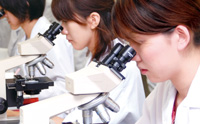
Medical laboratory technologists make use of the latest laboratory technology to supply physicians with reliable test
data essential to diagnosis and facilitate a scientific understanding of disease. The Department of Medical Technology
equips students with the knowledge, skills, and investigative tools they will need to pursue successful careers as medical
laboratory scientists in the rapidly advancing high-tech world of medicine.
Department of Health and Welfare
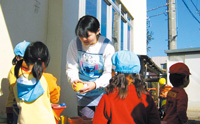
The Department of Health and Welfare trains professionals equipped with the medical knowledge and counseling skills
to provide sound guidance in matters of health and sickness. Our students are trained to support and enhance the wellbeing
of others as social workers, school nurses, and other professionals in the field of health and welfare.
Department of Nursing

The Department of Nursing offers a quality education for people seeking to work at the frontlines of health care, assisting
the ailing and supporting health and wellness through sensitive, compassionate, patient-centered professional nursing
services. Our program is dedicated to producing clinical nurses who understand human suffering and public nurses
with the knowledge and support the community and midwives who are specialists to support pregnancy, childbirth and
postpartum and to provide care for newborn and the infant.
Graduates of the Nursing and School Nursing Major course are eligible to take the national licensing examination for
nurses, and in addition they can also obtain a school nurse license under the standard curriculum.
We aim to educate students with scientific knowledge, the medical skills and global perspective necessary for nurses and
school nurses who support children’s growth and development through health care and guidance.
Department of Clinical Engineering
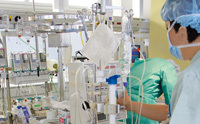
Clinical engineers are responsible for supervising the operation, maintenance, and management of cutting-edge medical
equipment, including sophisticated life-support and patient-monitoring systems. The Department of Clinical Engineering
trains students to fill this crucial role at the forefront of advanced medicine.
Department of Paramedics
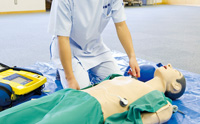
Paramedics provide emergency medical care for the critically ill or injured in pre-hospital emergency situations. Working
at the frontlines of emergency medicine, they help save lives and ease the physical and mental anguish of emergency
patients and accident victims. Our students dedicate themselves to developing the extensive medical knowledge, skills,
and ability to assess patients quickly and appropriately in critical situations, when every second counts.
Department of Rehabilitation
Physical Therapy Major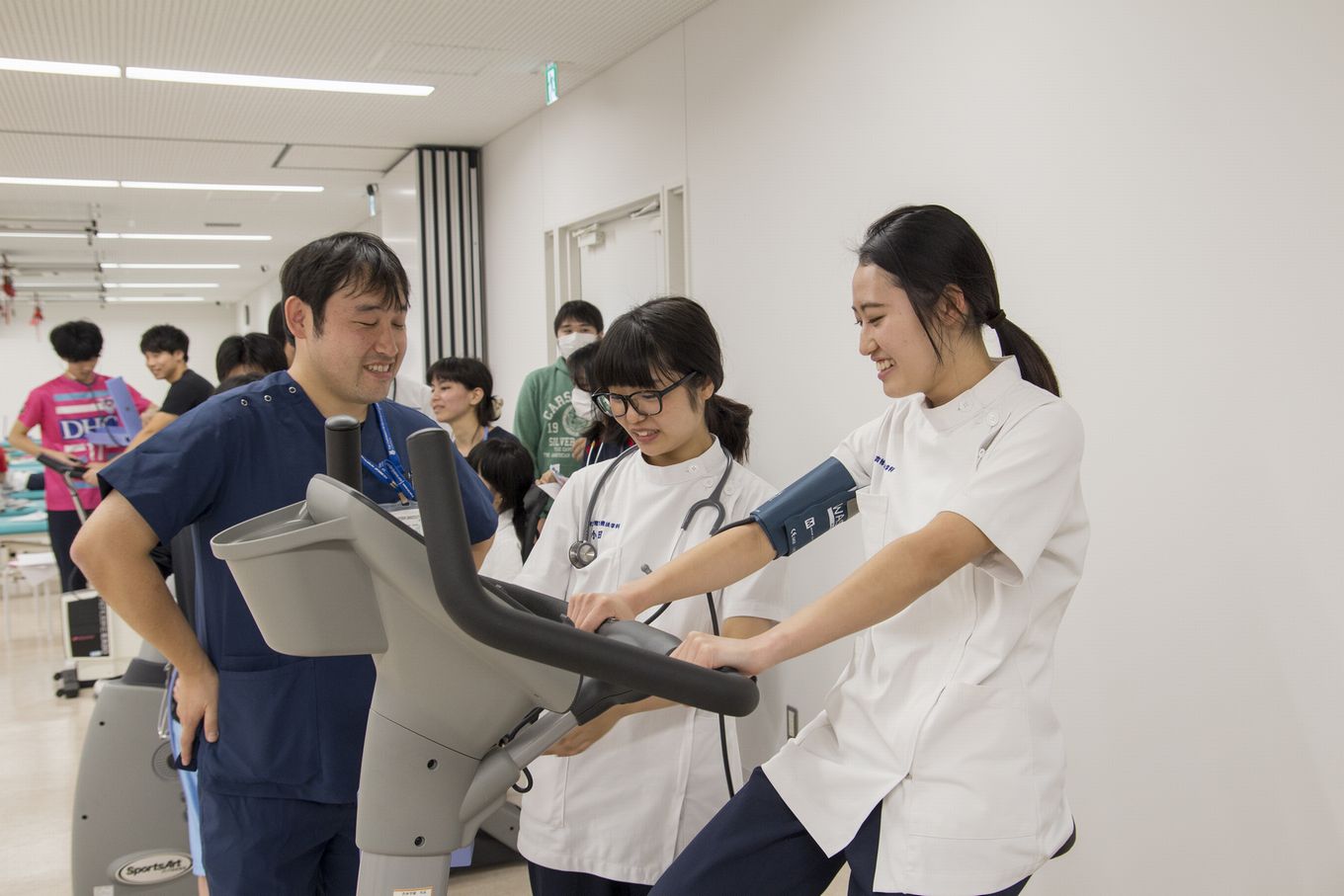
Physical Therapy Major is committed to providing a high level of practical training. We are working in close
cooperation with Kyorin University Hospital to ensure that instruction keeps abreast of advances in medical technology
and are equipped with the latest testing, evaluation, and rehabilitation equipment, including 3-D motion analysis systems,
respiratory oxygen analyzers, and force platforms. Our faculty members offer expertise in basic physiotherapy as well as
specialized treatment for neurodevelopment, mobility, and internal-obstruction problems.
Occupational therapy uses a variety of task-oriented activities to help people develop or regain the physical and mental
functions needed to carry out everyday activities and adapt successfully to school, the workplace, and the community. The
Department of Occupational Therapy is committed to training professionals equipped not only with a full range of therapeutic
techniques but also with the humanity and personal skills they need to become their clients’ trusted partners and advisors.
Department of Medical Radiological Technology
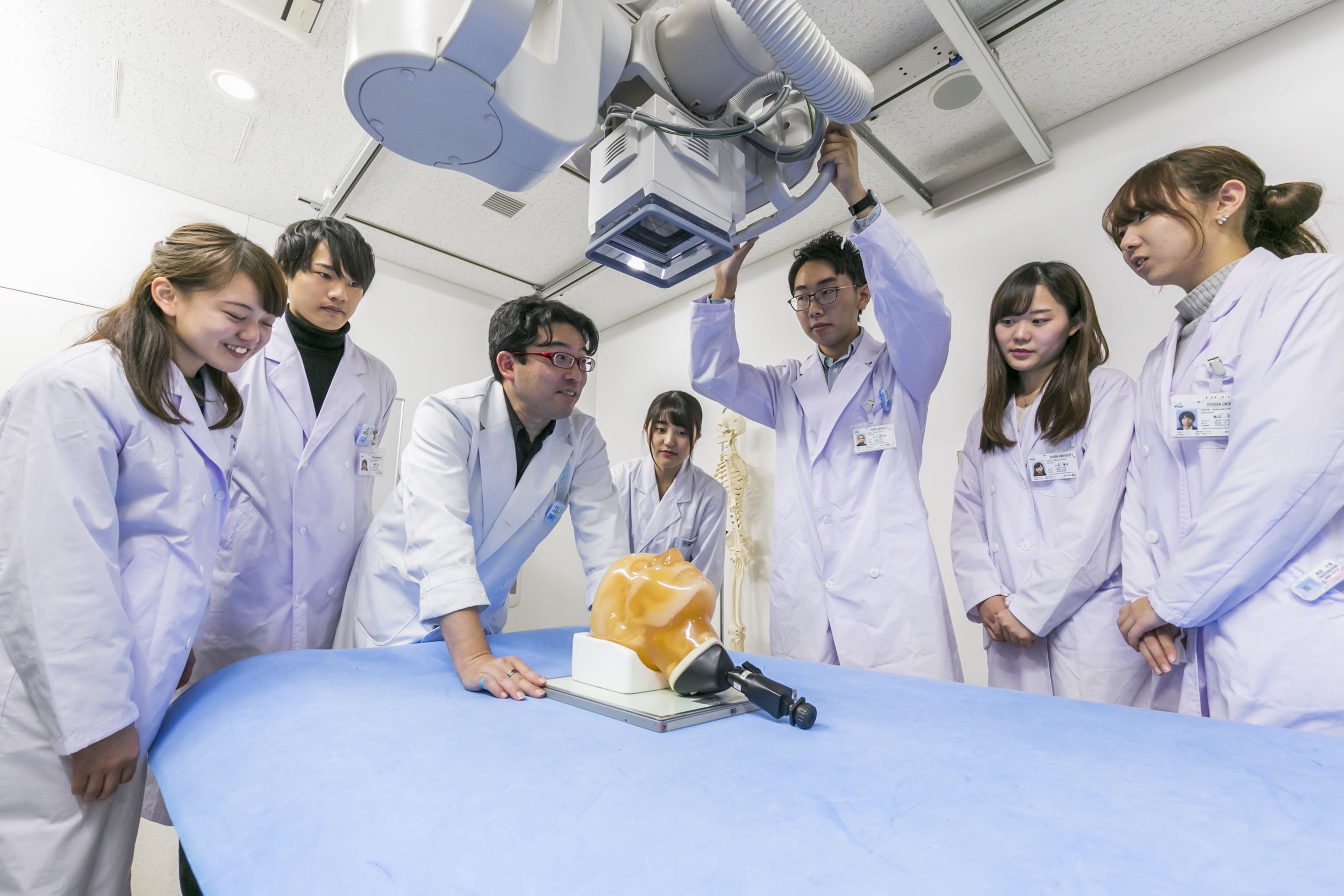
Medical radiological technologists are professionals qualified to use radiological equipment on patients as directed by a physician.
This includes such diagnostic imaging technology as X-ray computed tomography (CT), SPECT (single-photon emission computed
tomography) and MRI (magnetic resonance imaging), as well as linear accelerators and other radiation therapy equipment. The
development of increasingly sophisticated precision radiological technology has created a demand for technologists with the advanced
computer skills and technical expertise needed to operate such equipment. In the Department of Medical Radiological Technology,
students acquire this specialized knowledge along with high ethical standards, an understanding of basic social and economic principles,
communication skills, and all the other competencies they will need to function as an effective member of a health-care team.
Department of Clinical Psychology
In 2015, a new national qualification for licensed psychologists who support people with psychological difficulties through observation and analysis in a wide range of fields such as health care, welfare, education, industry and justice was established.
In 2018, the Faculty of Health Sciences opened the Department of Clinical Psychology.
Licensed psychologists are asked for assistance using scientifically-based methods and collaboration among many types of occupations. Therefore, in this department, teachers represent many professions including certified clinical psychologists, doctors, nurses and occupational therapists among others. Our faculty provide students with the knowledge and experience gained from their own research and clinical practice and support them so that the knowledge gained in their classes will lead to a richer understanding of the practice. We will support our students to steadily complete the requirements for qualification as a licensed psychologist.
COPYRIGHT © KYORIN UNIVERSITY ALL RIGHTS RESERVED